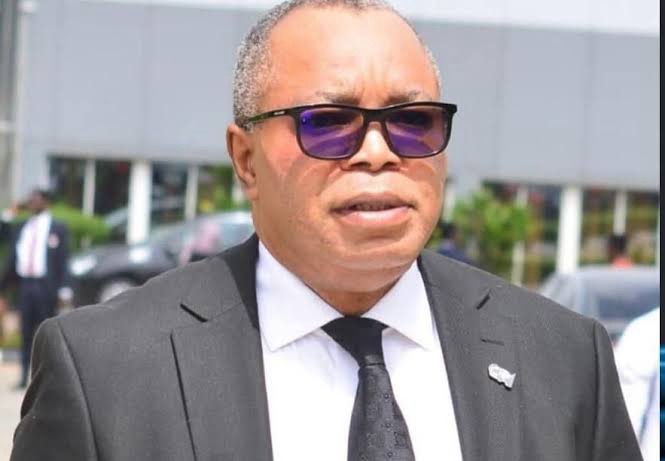- Edo APC Chairman Jarrett Tenebe says any commissioner who refuses to wear Tinubu’s Asiwaju cap at Exco meetings will be suspended.
- Governor Monday Okpebholo earlier directed all commissioners to wear the cap as a symbol of loyalty to President Tinubu.
- The APC in Edo says the move is part of its plan to secure 3.5 million votes for Tinubu in 2027.
- Critics say the policy is unnecessary, while supporters describe it as a harmless act of party unity.
Chairman of the All Progressives Congress (APC) in Edo State, Jarrett Tenebe, has said that any commissioner who refuses to wear President Bola Tinubu’s Asiwaju cap during State Executive Council meetings will be suspended from the party.
This follows a directive by Governor Monday Okpebholo, who recently asked all commissioners to wear the symbolic cap as a mark of loyalty and unity within the ruling APC.
ATTENTION: Click “HERE” to join our WhatsApp group and receive News updates directly on your WhatsApp!
READ ALSO: Imo Govt Rescues Widow Forced To Drink Water Used In Bathing Husband’s Corpse
Tenebe, in a television interview, described disobedience to the governor’s order as indiscipline and insubordination. He stated that the party is focused on delivering 3.5 million votes for President Tinubu in the 2027 election and would not tolerate any act that undermines party cohesion.
“If you refuse to wear the cap as the governor has directed, we will suspend you,” Tenebe said. “We made a promise that 3.5 million votes are guaranteed, and every appointee must demonstrate loyalty to the President. No Asiwaju cap, no Exco.”
Governor Okpebholo, who assumed office in November 2024 after a closely fought election, emphasized that the Asiwaju cap symbolizes unity among party members. During the inauguration of the last batch of commissioners, he reminded them to always wear it to Exco meetings as a gesture of respect and shared purpose.
READ ALSO: Ondo Police Bust Baby Factory, Arrest Woman Selling Babies
The Asiwaju cap, famous for its embroidered broken shackle emblem, has long been associated with President Tinubu’s political identity. The term “Asiwaju,” a Yoruba word meaning “leader,” signifies guidance and authority in Tinubu’s political circle.
While supporters see the policy as a harmless show of solidarity, critics argue it is politically excessive and distracts from governance priorities. The debate has continued online, as clips of Okpebholo’s remarks spread across social media, attracting mixed reactions from Edo residents and political observers.


